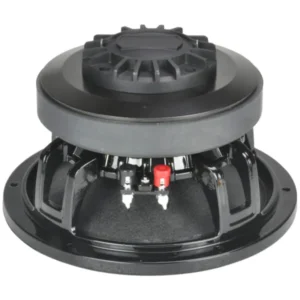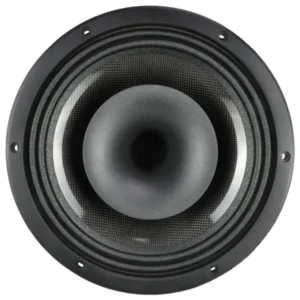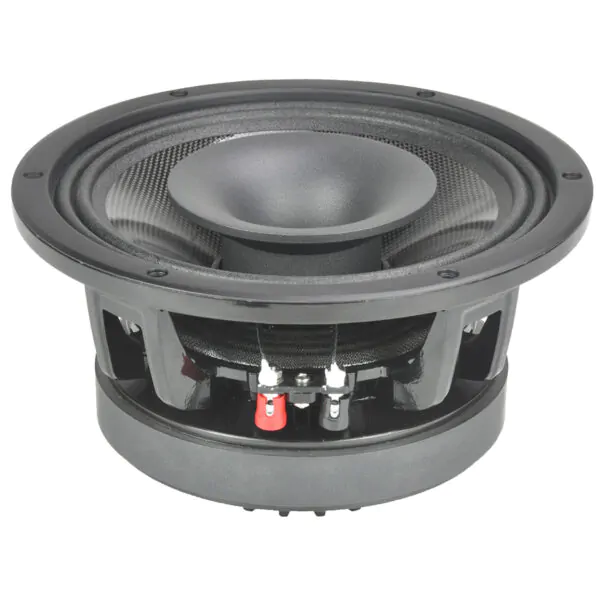Are Wholesale Speakers the Key to Optimizing Your Audio Manufacturing Business?
In the dynamic world of audio technology, the quality of sound reproduction is paramount, directly influencing product success and brand reputation. For mechanical manufacturing firms and product service providers specializing in loudspeakers, car audio systems, and professional sound equipment, the choice of components is a critical decision. Specifically, sourcing wholesale speakers—the foundational drivers that transform electrical signals into audible sound—is not merely a procurement task; it is a strategic maneuver that determines cost-efficiency, scalability, and ultimate acoustic performance. This in-depth guide is designed to illuminate the complex process of selecting, purchasing, and integrating wholesale speakers to ensure superior value for both your business and the end-user.

The Foundational Role of Wholesale Speakers in Product Engineering
The term wholesale speakers refers to the bulk purchasing of electro-acoustic transducers (drivers) that are the heart of any speaker system. These components are essential inputs for companies producing integrated audio solutions, ranging from OEM (Original Equipment Manufacturer) car sound systems to high-fidelity home theater setups and robust public address (PA) systems. The decision to buy wholesale speakers allows manufacturers to achieve economies of scale, significantly reducing the per-unit cost, which is vital in maintaining competitive pricing in a crowded global market. Furthermore, a stable supply of high-quality drivers ensures consistency in the acoustic signature across entire product lines, a non-negotiable requirement for brand trust. The procurement strategy must, therefore, be deeply integrated with the product’s engineering specifications, focusing not just on price but on the rigorous technical characteristics demanded by the application.
Navigating Technical Specifications for Specialized Audio Applications
Choosing the right wholesale speakers necessitates a profound understanding of the technical details that define a driver’s performance. For the mechanical manufacturing sector, this involves analyzing parameters that dictate a speaker’s suitability for its intended environment and function.
Focusing on Thiele-Small Parameters for Loudspeaker Design

In the realm of dedicated loudspeakers (for home or professional use), the driver’s Thiele-Small (T/S) parameters are foundational. Parameters like Fs (resonant frequency), Qts (total Q factor), and Vas (equivalent volume) are indispensable for designing the speaker enclosure. For instance, a low Fs driver with a specific Qts might be ideal for a vented subwoofer enclosure, whereas a driver with different characteristics would be better suited for a sealed midrange box. Manufacturers must ensure their wholesale speakers supplier provides precise and consistent T/S data, enabling engineers to accurately model and simulate the final acoustic output, thus preventing costly redesigns or manufacturing defects later in the process.
Addressing Power Handling and Durability for Car Audio
The application of wholesale speakers in car audio environments introduces unique challenges related to power handling, extreme temperatures, and limited installation space. Car speakers must be exceptionally durable and capable of handling high continuous power (RMS), often in environments subject to vibration and humidity. Manufacturers purchasing in bulk must look for specific materials—like treated paper cones for humidity resistance or robust voice coil materials like Kapton or aluminum for superior heat dissipation. A focus on high sensitivity is also crucial, as higher sensitivity drivers maximize output from the often limited power available from a car head unit or amplifier. Therefore, the long-term reliability of these wholesale speakers becomes a key value proposition for the end-user.
Material Science and Acoustic Integrity: The Essence of Quality
The material composition of the cone, voice coil, magnet structure, and suspension system directly impacts the driver’s sound quality and longevity. Cones made of advanced materials like Kevlar or carbon fiber are favored in high-end applications for their stiffness and lightness, minimizing distortion. The magnet type (Ferrite, Neodymium, or Alnico) dictates the motor strength and driver size, impacting the overall form factor. Wholesale speakers sourced for premium products often utilize high-flux Neodymium magnets, offering a significant performance-to-weight ratio, a crucial advantage in weight-sensitive applications like portable PA systems or high-performance car audio. It is only through meticulous material selection and rigorous quality control that a company can truly leverage the economic advantage of buying wholesale speakers without compromising acoustic integrity.
The Strategic Partnership: Beyond Transactional Wholesale
A successful wholesale strategy transcends a simple price negotiation; it is about establishing a long-term, symbiotic partnership with a reliable supplier of wholesale speakers. For manufacturing companies, this relationship must be built on mutual transparency, clear communication of technical standards, and shared commitment to ethical business practices. A supplier who can offer consistent stock, flexible customization options (such as logo printing on the driver frame or specific terminal types), and access to engineering support provides substantial value. This depth of partnership mitigates supply chain risks and ensures that when production demands increase, the required quantity of consistently high-quality wholesale speakers is readily available. Furthermore, ethical sourcing and adherence to international environmental standards are becoming increasingly critical to corporate social responsibility (CSR) and market acceptance, making a supplier’s compliance record an integral part of the purchasing decision.
Value Creation and Future-Proofing Through Strategic Sourcing
Ultimately, the goal of procuring wholesale speakers is to deliver exceptional value to the end consumer. By optimizing the cost and quality of the core component, manufacturers can invest resources into other areas of the product, such as advanced digital signal processing (DSP) or innovative enclosure materials. The strategic bulk acquisition of drivers is a powerful tool for maintaining a competitive edge, allowing manufacturers to consistently offer superior sound performance at an accessible price point. As the audio landscape evolves—with the rise of immersive audio formats and voice-activated technology—a flexible and technologically advanced wholesale speakers supplier is a non-negotiable asset, allowing the manufacturer to quickly adapt their product lines to meet emerging consumer demands and future-proof their business model against obsolescence. Choosing the right wholesale partner, therefore, is an affirmative step toward long-term business success in the demanding audio industry.
❓ Frequently Asked Questions (FAQ)
Q1: How do I ensure quality consistency when buying wholesale speakers in large volumes?
A: Quality consistency is best ensured through rigorous supplier vetting. Demand comprehensive technical data sheets (including T/S parameters, SPL charts, and materials used), request samples from the actual wholesale batch for independent testing, and establish a clear Quality Assurance (QA) protocol that includes acceptable deviation tolerances for key parameters like Fs and Qts. A reliable supplier should also provide factory test reports for each major shipment.
Q2: Is it better to choose ferrite or neodymium magnets for wholesale car audio speakers?
A: Neodymium magnets offer a much stronger magnetic field for a given size and weight compared to traditional Ferrite. While Neodymium drivers are generally more expensive to buy wholesale, they are often preferred in car audio due to their light weight and compact size, which is critical for door panel or dashboard installation, and their superior efficiency (higher $\text{SPL}$) which maximizes output from limited power. Ferrite remains a cost-effective option for larger, less space-constrained applications.
Q3: What lead time should I expect for customized wholesale speaker orders?
A: Lead times can vary significantly based on the level of customization and the supplier’s production queue. For highly customized wholesale speakers (e.g., unique cone materials or custom baskets), expect an average lead time ranging from 8 to 14 weeks after final sample approval. Standard, non-customized wholesale orders generally have shorter lead times, typically between 4 and 8 weeks, depending on stock levels. Always confirm the production and shipping schedule upfront.




Gotta say, 900betcasino has impressed me. They have a huge selection of games, and I found some I’d never seen before. The website is easy to navigate and the customer service was helpful when I had a question. Check out the selection here: 900betcasino
Alright, so I stumbled upon 63jl the other day. Not bad, not bad at all. It’s got a few quirks, but overall a solid experience. Give it a whirl and see what you think! 63jl
Thank you for your sharing. I am worried that I lack creative ideas. It is your article that makes me full of hope. Thank you. But, I have a question, can you help me?